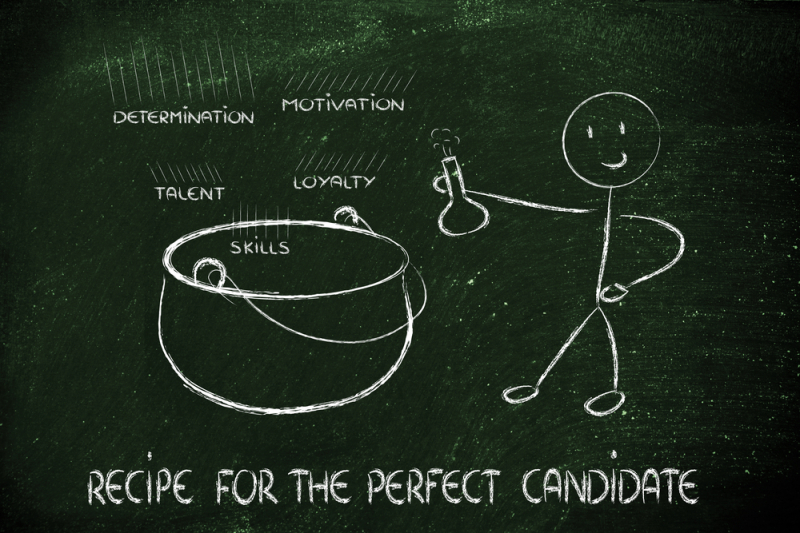Major trends
There are several requirements for all digital professions. Firstly, a modern specialist should have a wide and diverse background and skills, and yet also be an expert in one specific field. Most of the modern successful businesses are interdisciplinary. That’s why people who pursue education in several fields are more successful in finding a job and getting promoted.
Secondly, it doesn’t matter if you’re a programmer, a designer, a scientist, or an artist: everyone should develop their soft skills. That includes not only communication skills that help one work in a team, but also self-promotion skills. It’s not enough to be a great specialist who does great stuff, you should also be able to tell about it and to make people interested.
Another important tip is to stop studying by reading books. Everything is changing so fast that trends come and go every couple of months. By the time a book is written, printed, delivered and bought, the information it contains will have lost its relevance. It’s more efficient to follow online courses, blogs, and channels in order to always be aware of what’s happening.

Education in the modern world
All digital professions can be divided into five categories: marketing, business management, design, programming, and analytics. However, they all intercept in one way or another.
An advantage of these professions is that you can educate yourself and become a specialist quite quickly. It’s also not that hard to begin: due to high demand, it’s quite easy to find an internship, become a freelancer, or join a startup, even if you’re not well-experienced yet. By doing so you can compile yourself a portfolio, gain some experience, and make professional contacts.
Marketing

Digital marketing is a general term for specialists who promote products and services on the web. A marketing specialist’s functions include analyzing the market, performing web analytics, and coming up with advertisement strategies. Their skills include lots of things: it’s necessary not only to be able to use analyzing tools, determine a product’s or company’s image and target audience, but also follow the trends, and have some expertise in design, context advertisement, targeting and SMM.
The digital world develops so fast that you need to learn all the time. A good marketing specialist follows the trends and is able to use relevant tools in order to attract the audience. Companies require more and more good specialists, so digital marketing specialists’ salaries grow every year.
Digital marketing specialists usually manage other, more specific employees that deal with SMM, SEO, copywriting, targeting, and design.
SMM specialists are responsible for social media content: they create posts, blog entries, take pictures and videos. They also develop a community by checking the comments, replying to users, attracting new people, and dealing with negativity. They also look for cooperation with bloggers and opinion leaders. A salary of such a professional can start from 35,000 rubles and grow to 70,000 rubles, while the learning process only takes three months or less.

SEO specialists are responsible for the search engine optimization: they create or edit texts so that it would be easy to find them using keywords. A good SEO specialist’s salary can be up to 80,000 rubles.
Context advertisement specialists promote products in Google Adwords, Google Analytics, Yandex.Direct and Yandex.Metrics. Google and Yandex teach people how to use their tools for free. A certificate from them is almost an obligatory requirement in this field. The salary of such a professional is about 30,000 to 60,000 rubles.
Copywriters are responsible for all kinds of text: website content, email mailings, blog entries, promo leaflets and so on. The main thing for a copywriter is to create fascinating, selling texts that will not only provide information on a product or a service, but also catch the attention of potential clients. Even though this job requires a certain talent, journalism skills and flawless writing, the salary is not that big: 25,000 to 50,000 rubles.

Lately, all listed specialists are being replaced by a content marketing specialist. As we have already said, professionals who are able to do different stuff and replace several employees are very popular at the moment.
Digital marketing specialists deal with the promotion of a product or a service, and content marketing specialists are responsible for the sales. It’s not that important to sell one product: it’s more about creating a brand image, to make it recognizable, preferably – to make it go viral. It’s performed by means of content that is placed on as many communication channels as possible.
The key requirements for any content these days are the following: usability, high quality, creativity, and novelty. If you create a hilarious ad that is more about the fun and not about selling something, there won’t be a need to promote it, because users will spread it themselves.
Business management

The key management positions at the companies are project manager and product manager (we have an article about the difference). They are responsible for the general direction that the whole team will work in.
Project manager is basically the head of a team and is responsible for the completion of a project. They set deadlines, plan finances and other resources, and check that the whole team follows the requirements.
Project manager shouldn’t necessarily be a programmer, a designer, or a salesperson, but they must acquire a certain expertise in these fields to understand who is responsible for what and to set the deadlines correctly. If a manager doesn’t know how the processes go in their team, they won’t be able to manage it well.
Product manager, however, works on the strategy for the entire product. Soft skills aren’t enough in that case. They must be able to create a business plan, analyze the market, determine potential clients, be proficient in analytics and metrics tools, prepare presentations, talk to investors, have a certain expertise in design, interfaces, unit economics, A/B testing, customer development and so on. So, they are responsible not only for the creation and development of a project, but also for promoting it.
Design

There are several types of design: graphic design, product design, web design, interface design, and motion design.
A graphic designer is responsible for the visual aspect of a brand. They come up with everything that concerns the style of a company: the logo, the color scheme, the fonts, the design of a package, and the layouts. Sometimes they create illustrations, but usually illustrators are responsible for that.
It’s not necessary to be able to draw in this case, because they work in graphics editing programs, so it’s necessary to be proficient in Adobe programs. You can learn how to do it in a year or a half, but creating a portfolio will take more time. Their salaries are usually about 50,000-70,000 rubles.
A web designer deals with a visual appearance of the webpage. They don’t have to know programming languages and even HTML/CSS, because web programmers deal with it. Plus, nowadays there are lots of website builders that eliminate the need to know the inner structure of a webpage.
Web designer’s functions are creating layouts for sites and web interfaces, and choosing visual content for a site: fonts, illustrations, and color schemes. It’s necessary to be proficient in graphics editors and Figma, a platform usually used for creating a layout. Average salary of web designers is about 85,000 rubles, and the study period takes about four to six months.

Motion designer deals with animation. Animation of logos, intros for YouTube videos, rendered videos and animated elements of a site, even symbols on a loading page or an animated click on the trash icon are their responsibility. A motion designer usually works in Adobe After Effects, but they also should be proficient in vector graphics and Photoshop programs: in general, you can’t be a designer without it. The average salary of a motion designer is around 100,000 rubles. Studying for this job can take a year or a year and a half.
We won’t go into VFX and 3D design here: even though professionals in these fields are in demand, rather specific and profound skills and knowledge are required.
When we talk about interface designers, we can stumble upon the terms UX and UI design. User Experience is about the way a user perceives a site’s, an app’s, or a program’s interfaces, and whether they are user-friendly or not.
Product designers combine the functions of designers, web designers, interface designers, product managers and analysts. They are developer team leads, and are responsible for the appearance and usability of a product.
It's a very responsible position that requires a proper background, knowledge and skills, but it also pays well: 120,000 rubles on average. Studying will take at least one year.
Programming

Is there a more demanded profession than programmers? Probably no, because nowadays programmers are the core of the world. At the same time, there is always a lack of them.
Just like in other digital professions, multitasking professionals are also highly appreciated in programming too. Specialists who are proficient both in back- and frontend development are called fullstack developers. Obviously, they are in high demand and are very well-paid.
However, the best paid professionals on the IT market are DevOps engineers. This profession is a combination of a developer and a system administrator. It’s someone who is responsible for making sure that the code is compiled, packaged, and received by a client without any errors. DevOps are supposed not only to be able to code, but also to know the specifics of processing, routing, securing the packages and so on. The average salary of DevOps specialists, even junior ones, is about 120,000 rubles.
Analytics

On the Internet, all they talk about is Big Data. Millions of people produce huge amounts of content and leave their digital imprint every second. Thanks to the Internet of Things, our surroundings are filled with objects that also produce non-stop information: fitness trackers, GPS navigators, TVs and even refrigerators.
All this data is highly valuable for scientists, researchers, marketing specialists, businesspeople, police officers, criminologists, journalists and politicians. However, someone must process it first.
That’s why data analysts are in demand and there is a lack of them in all fields. By getting into that profession, you can get a job at some huge company even without job experience.
Data analysts collect the raw data, analyze it and transform it into statistical models. Their main tools are descriptive statistics, mathematical analysis, SQL, and Python.
How to pass a job interview

Say you have attended a course and compiled a portfolio. How do you get your dream job? Let’s start with the basic rules.
Your CV is a ticket that can help you start a career, so it’s very important to create one correctly.
The main rule is: don’t lie about your skills and accomplishments. You won’t fool anyone, because your dishonesty can be easily detected during the interview.
Another tip: you should be specific. If you say that you speak English – mention your level, if you code – list the languages you can work with, if you design – name the programs you are able to use, and so on. It’s not very good to write vaguely. You also shouldn’t mention the basics: these days anyone can use Microsoft Office and Internet browsers. It might sound funny, but some people still put it in their CVs.
There is also no need to mention soft skills: punctuality, ability to learn, politeness, and so on. HR receives such CVs by hundreds. If this is not a job requirement, don’t mention it.

You also shouldn’t send the same CV to all the companies. You should do your research on every company and edit your CV accordingly.
A motivational letter is almost a necessity. It increases your chances of being noticed and invited to an interview. A letter can be less formal than a CV, so you can describe why this particular job or company interests you and how you can be useful.
A portfolio is also necessary: without it you probably can only get an internship. It’s a very important part of your CV which proves that you have practical skills, not only theoretical background. That’s how an employer judges your qualification.

A portfolio shouldn’t necessarily be related to a job experience. It can be about projects you’ve completed as a student or in your free time. It’s not that important for the project to be commercial, the main purpose is to present your skills. However, having implemented projects is an advantage. So, for a start, you can try to complete something as a freelancer.
And the last thing: estimate yourself correctly. Be sure to know the average salary of professionals in your field. Junior specialists often belittle their value and say that they’re ready to work “for food”. If you won’t be paid properly, you won’t be able to go on for a long time and eventually will lose interest.
Another common mistake is asking for too big of a salary for an entry position. If you have only just finished an online course, you shouldn’t ask to be paid like an experienced specialist, no one will take you seriously.
Internships and working at a startup

What do you do if you’re unemployed due to the lack of experience? There are several ways to deal with it.
Firstly, you can get an internship at a big company. Most of them are ready to invite interns, sometimes for a minimal fee, but more often for an unpaid internship. However, in a few months of work, you can not only immerse yourself into a new field, get an inside view, all the necessary skills and experience by working on real projects, make professional contacts and get guidance from mentors, but you will also have something to add to your CV and it will further increase your chances of finding a job in the future.
Plus, if they will be satisfied with your performance, you can get a permanent job at the company: they are always on a look-out for a talented specialist.
Another good option is a startup. Usually startups look for young creative workers, even though they are unable to pay them, since so far there is no profit, or it’s not very stable. However, working at a startup is a great opportunity to improve your skills quickly and show what you are able to do, because often startups demand initiative, innovative thinking and creativity. At a startup you can work on the craziest ideas and gain a unique experience in the process. In other companies such freedom of action is rare.





